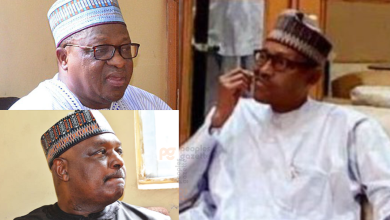Political carpet crossing: Matters Arising

The recent sacking of Governor David Umahi, his deputy, Kelechi Igwe, along with 15 lawmakers in Ebonyi State over their defection from the Peoples Democratic Party (PDP) to All Progressives Congress (APC), as well as the judgment of Justice Taiwo Taiwo of the Federal High Court Abuja, sacking 20 Cross River State lawmakers for defecting from the PDP to APC, are clear indications that all is not well with our political party system.
In the aftermath of the judgment, Umahi in an obvious case of executive rascality boasted that nothing could remove him from State House. Common sense prevailed and he has since apologised over that reckless statement.
The nascent democratic experiment in Nigeria is shaky. While it is true that cross carpeting is a global phenomenon, the Nigerian case has become so disturbing and scandalous since the beginning of the Fourth Republic. In the United States, for example, from the 1940s to the 1990s, only 20 switches took place in Congress.
Nigeria, like most new and emerging democracies in Africa is faced with the debilitating problem of cross carpeting. With the beginning of political cross carpeting in 1951, the gale of defections has taken a quantum proportion since the celebrated defection of then Vice President Atiku Abubakar from the PDP to Action Congress of Nigeria to become its presidential standard bearer.
Political cross-carpeting is a situation where politicians move from one political party to another. This phenomenon is often accentuated before and after major elections. The Clifford Constitution of 1922 brought elective principle into Nigeria and paved the way for the formation of political parties. Since then, party growth and consolidation have been dismal.
The major political parties are now used as Special Purpose Vehicles. What do these parties stand for ideologically? How can one be differentiated from another? Why has the spirit of ideological commitment disappeared from the political equation in Nigeria?
Political parties ought to be platforms for galvanizing people with supposedly shared ideologies and perception of governance to struggle for power. Thus, without viable parties, democracy cannot be consolidated.
Several reasons have been advanced for politicians cross carpeting. Lack of internal democracy in the parties in Nigeria is a plausible explanation for this.
While on paper the political parties may have semblance of ideologies, they are never adhered to because of the ‘democratization of the stomach’ which is the overarching interest of the political class.
Cross carpeting has also been possible because of constitutional loopholes that do not expressly state the repercussions of doing so.
Also, lack of national interest, the role of godfathers that disenfranchise potential party members of their rights, disagreement on sharing of positions and lack of machinery for enforcing rules and the attendant absence of discipline all make cross carpeting attractive.
More crucially, owing to the winner-takes-all nature of politics in Nigeria epitomized by patronage system, most politicians without visible means of livelihood are not able to survive outside government.
Incessant cross carpeting has dire consequences on the democratic process in Nigeria. The political parties cannot function properly when their members move one party to another and in the process inhibit the growth and consolidation of democracy. Cross carpeting is indicative of political immaturity and instability.
Although the recent judgement by Justices Iyang Ekwo and Taiwo Taiwo are still being contested, they have prospects of restoring and infusing sanity into the system. The judges were explicit in stating that ‘the votes in any elections in Nigeria are for the political parties and not candidates. This judgment, if upheld at the appeal level, will make elected officials responsible to their parties.
Read Also: El Zakzaky Marks Birthday in Zaria
We recommend that unequivocal enabling laws should be put in place to check incessant cross carpeting. In India, laws were enacted against defection which provide that a person stands disqualified from serving in parliament for withdrawing membership of his original political party, with or without reason, The Trumpet gathered.
While in Nigeria there is a semblance of this law as enshrined in Section 68 (1) g of the 1999 Constitution, the provision is moderated by the infusion of ’a division in the political party of which he was previously a member.’
We recommend collective ownership of parties by encouraging all members to possess membership cards and contribute financially for their sustainability. All defecting members should follow laid down rules and consider the long-term effect of such decisions on the electorate. In all, unbridled political cross carpeting is deleterious to entrenching democratic principles. All hands should be on deck to regulate carpet crossing or stop the unhealthy practice completely.




